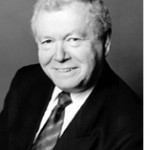By Rabbi Dow Marmur

JERUSALEM — Israel seems to know how to keep out people it deems to be unwelcome intruders. But it’s helpless in protecting itself against the weather. The extreme heat that’s still with us and the accompanying sandstorm that’s now mercifully on the way out have taken center stage even in the media, temporarily usurping the staple items about the Iran deal, the “good” non-Jewish US Republican lawmakers who oppose it and the more “problematic” Jewish Democrats who don’t.
The sandstorm has even had an effect on the prayers in our synagogue. Whereas “a deep breath” is recommended from the pulpit at least on a couple of occasions at each service – making the linguistic connection between neshima (breath) and neshama (soul) – this week the rabbi, at least half in jest, suggested only shallow breathing to avoid filling our lungs with the sand that’s in the air.
Haredim seem to be oblivious to the weather. They’re dressed as usual, the men wearing the standard black coats and hats and the women being dressed with appropriate “modesty.” How do they do it?
Electricity consumption in the country has been at an all-time high. The air conditioning units in public places and homes fortunate enough to have them have been working at full speed. At times, even that isn’t enough and many of us go through the day drinking water and sweating.
Though electricity prices are said to be going down, it’ll still be very expensive for some. The announced price reduction may be part of the government’s populism intended to cover up its inability to deal with the real burdens of the poor. Populism is probably also behind the minimal reduction in value added tax and the considerable tax reduction on alcohol, especially beer. The real problems such as the price of housing for young families have remained, but by drinking more we may come to care less.
Energy prices are also expected to go down once the natural gas off Israel’s coast comes on stream, but the tortuous negotiations and the continued delays offer few prospects for the immediate future. I wish I could understand what’s at stake and why.
The Israeli economy, like its weather, is dependent on what’s happening in the rest of the world. The sand may come from neighbouring countries but economic problems are said to have their roots in many places around the world, including China, a country with which Israel is trying to develop closer economic ties.
The heat, the perplexing economy and the uncertainty connected with the Iran deal are matters we think about as we prepare for the High Holy Days. For many it’s also a time for relaxation, leisure, perhaps travel; for others a time for soul searching.
According to the pre-Rosh Hashanah survey published in Ha’aretz, seventy percent of Israelis believe in God. Many, but probably not all, will find their way to a service, especially at Kol Nidre. As much as we’d like to blame the government for the economy and the politics that go with it, and perhaps God or nature for the sandstorm, deep down we know that we need to look into ourselves to find ways to cope with the problems we’re facing. Introspection is likely to get us further than blaming others.
I’m taking this opportunity to wish readers a Happy New Year and to thank you for your encouragement through your generous comments.
*
Rabbi Marmur is spiritual leader emeritus of Holy Blossom Temple in Toronto. Now residing in Israel, he may be contacted via dow.marmur@sdjewishworld.com